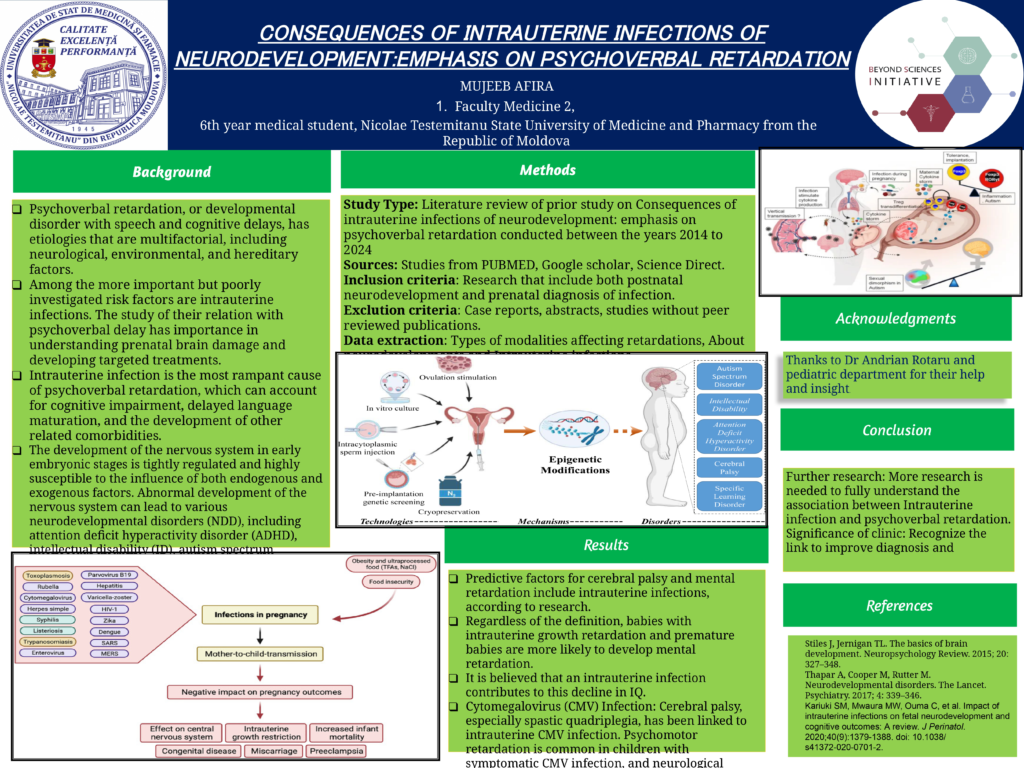Mujeeb Afira
Moldova
Consequences of intra uterine infections on neurodevelopment:emphasis on psycho verbal retardation
Afiramujeeb 1, Adrian rotaru 1,
1:Department of Pediatrics Usmf, Chisinau moldova
Abstract
Background
Psychoverbal retardation, or developmental disorder with speech and cognitive delays, has etiologies that are multifactorial, including neurological, environmental, and hereditary factors. Among the more important but poorly investigated risk factors are intrauterine infections. The study of their relation with psychoverbal delay has importance in understanding prenatal brain damage and developing targeted treatments. Clearing up this relationship will help researchers meet the needs of affected children and provide early intervention options.
Methods
The research is based on bibiliographic sources that were analyzed using PubMed, Google Scholar, Science Direct and other web sources, published within the period of 2014-2024.
Results
Such congenital infections as CMV, rubella, Zika, and Toxoplasma may cause grave damage to the infant brain and affect further language and cognitive development. These infections might be able to cause inflammation, hypoxia, and impaired neurogenesis, delays in speech, hearing, and motor skills. Early diagnosis and timely remediation, including speech therapy, can improve outcomes. Prevention through prenatal screening and maternal vaccination is key to minimizing the risk of such an infection. Diagnosis, however, remains difficult due to overlapping symptoms with other diseases.
Conclusions
Intrauterine infection is the most rampant cause of psychoverbal retardation, which can account for cognitive impairment, delayed language maturation, and the development of other related comorbidities. This review highlights how timing and type of virus are critical for understanding how neurodevelopmental impact varies by severity. More research is needed to establish more effective treatments and find early detection techniques and better preventive measures.


Leave A Comment